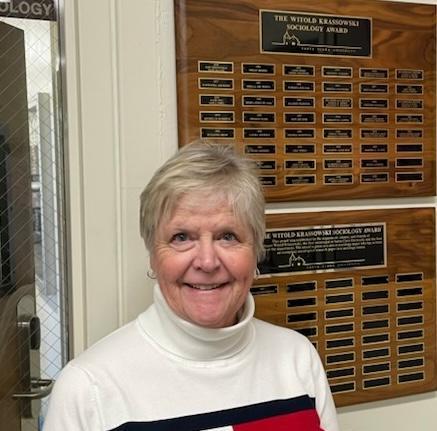
Reflections on All that a Sociology Degree Can Offer: First Sociology Club President and First Winner of the Krassowski Award Shares her Perspective
Mary McLane ‘75 Retired from SCU Ignatian Center for Jesuit Education in March
Christina Nelson ‘24, SCU Sociology Club Co-President 2022-2024
Bookending her professional life at Santa Clara University, Mary McLane reflects on her time as a Sociology graduate of the class of 1975 and as Director of External Relations for the Ignatian Center for Jesuit Education. I recently sat down with her in March of 2024 to reflect on her time at Santa Clara University before her retirement.
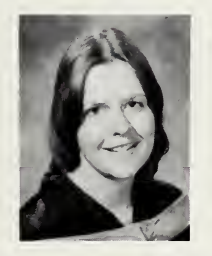
Back in the fall of 1971, when SCU still had football and you could drive through campus, Mary McLane enrolled in her first sociology course. She was immediately hooked on how sociology taught about ways in which you can make an impact and work toward change. Although initially uncertain of what she would study at SCU, she knew she had found the field of study that was right for her. And 46 years later in 2017, she would find herself back on SCU’s campus working at the Ignatian Center for Jesuit Education as the Director of External Relations. So much had changed, but much had stayed the same, including her passion for people, data, and making a difference.
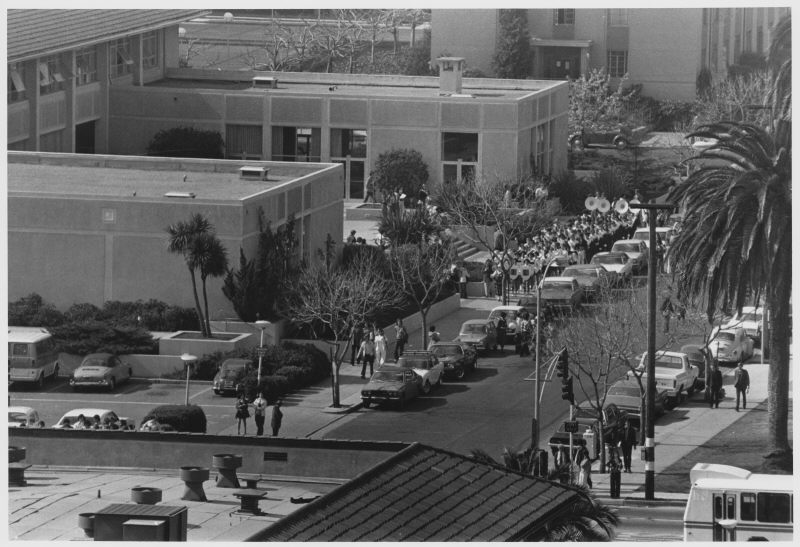 “Marching Band on The Alameda at Market Street by Benson Center, ca. 1975” by William C. Eymann, Courtesy of Santa Clara University
“Marching Band on The Alameda at Market Street by Benson Center, ca. 1975” by William C. Eymann, Courtesy of Santa Clara University
During her time as an undergraduate student, Mary was fully engaged with the Sociology Department as a dedicated student and research assistant, President of the Sociology Club, and the first winner of the Krassowski Award for an exemplary senior research paper. From her first day in SOCI 1, she was enthralled with the connection between sociology and people, particularly because she had never encountered any subject like it in high school. This desire to work with people inspired her first position at Community Health Services in Washington state and led to a career in various non-profits, including the American Heart Association, The Tech Museum of Innovation, and the San Jose Public Library Foundation.
“I knew early on that I always needed to work for an organization whose mission I was passionate about,” explained Mary. “Many of my friends were going into high tech and making a lot of money, and I remember I used to think that I just wish I could be interested in that. But I'm not and I have to say, I don't regret it. My whole life I've always sought out organizations that had a personal connection to me.”
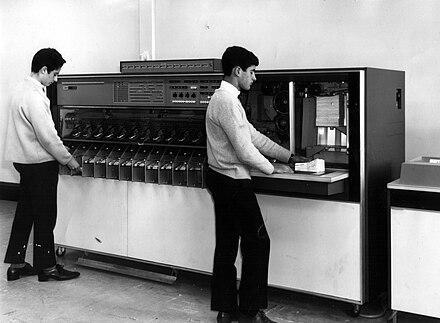
McLane is particularly interested in numbers and the data collection avenue, which she was first introduced to while doing research in sociology. As a student research assistant, she recalls working on projects with a professor and a couple of other students. Back when students didn’t have their own personal laptops or devices, data collection would have to be input into 80-column long counter sorters, and even if you made a mistake on column 79, you would have to trash that card and restart. Once the data was cataloged, they would drive up to Stanford University at 3:00 AM to input data into their computers, since that was the cheapest time for computer usage and that was all the research budget would allow.
The sociology students were a close knit group who would often meet up in the Sociology Lounge on the 3rd floor O’Connor to work on homework, have dinner, and connect with professors - not unlike the experience of many current sociology students. She and her group of friends started the first Sociology Club, which hosted some memorable events including a softball game against the Psychology Club, a trip up to San Francisco to watch One Flew Over the Cuckoo’s Nest, dinner at Professors’ houses, and working with professors on the first Western Anthropology and Sociology Undergraduate Research Conference.
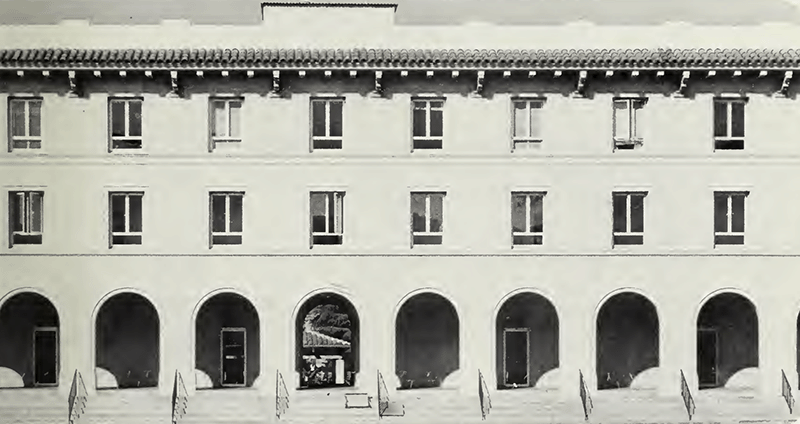
As Mary reflects on her retirement, she expresses a deep appreciation for the work that she has done, stressing the importance of finding work you can feel passionate about. She recommends that students research nonprofit organizations who tackle issues that they care about and that they volunteer during their time in college, since the connections and experiences they can take with them from this time are invaluable. Mary encourages them to participate in programs like the Ignatian Center’s Arrupe Engagement and Student Fellowship programs, as students can add volunteer work to their resume and show that they already have a background in a relevant field by the time they graduate. She explained how important her friendships and connections she made at Santa Clara University have been in her adult life and looks forward to what retirement has in store for her.
*Quotes edited for clarity and length*